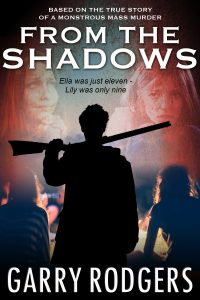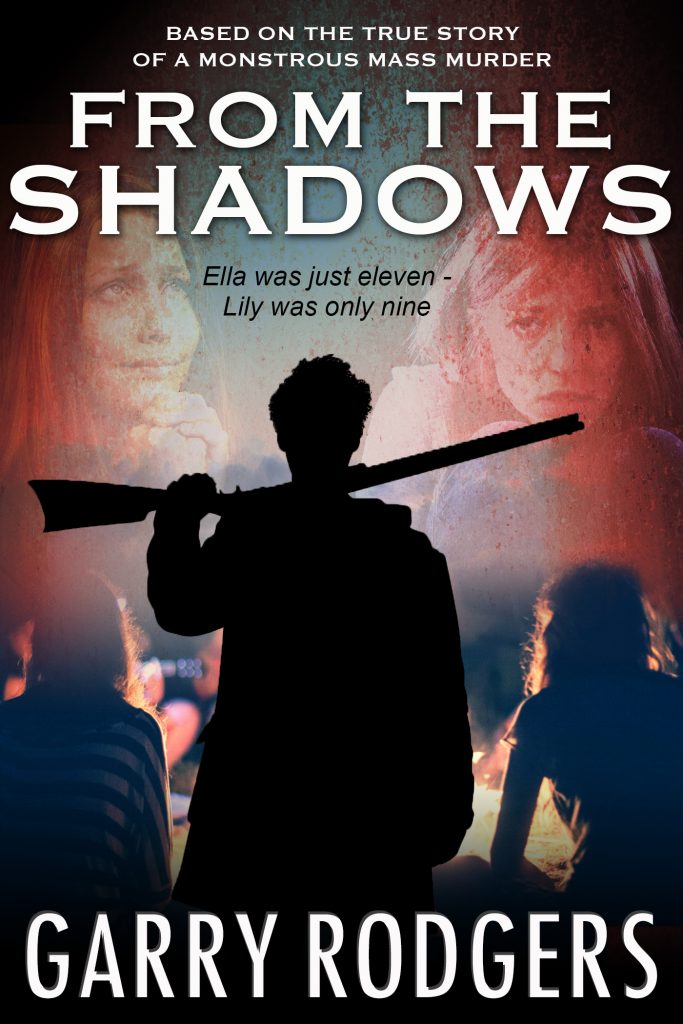 “The Tipping Point” is Malcolm Gladwell’s best selling book about how little things make a big difference. Most authors struggle to find what works—and what doesn’t—in creating and promoting their craft, as well as their careers. At what point do successful authors tip? What’s the tipping point where efforts converge to propel them to volumes of sales and recognition? What do best selling authors do which others need to know? And what little things would these writers do differently, looking back on their success, to make a big difference?
“The Tipping Point” is Malcolm Gladwell’s best selling book about how little things make a big difference. Most authors struggle to find what works—and what doesn’t—in creating and promoting their craft, as well as their careers. At what point do successful authors tip? What’s the tipping point where efforts converge to propel them to volumes of sales and recognition? What do best selling authors do which others need to know? And what little things would these writers do differently, looking back on their success, to make a big difference?
 I’ve hosted the DyingWords blog for four years now and I’ve met some fascinating authors who’ve agreed to share their success with you. Four years ago, most of these talented and entrepreneurial writers were struggling to tip and they persevered to become some of the best sellers in internet book publishing today.
I’ve hosted the DyingWords blog for four years now and I’ve met some fascinating authors who’ve agreed to share their success with you. Four years ago, most of these talented and entrepreneurial writers were struggling to tip and they persevered to become some of the best sellers in internet book publishing today.
I’ve followed, watched, and befriended these authors. Partly curious. Partly learning. And partly from my vanity of association with successful people—people who I want to emulate.
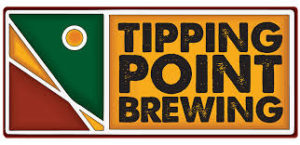 I know many DyingWords followers are authors who have the same desires, ambitions, and curiosity as me. So I contacted nine of the most genuine, most talented, and most successful authors I’ve befriended and invited them to share their success stories by answering three basic questions. This is what I wrote:
I know many DyingWords followers are authors who have the same desires, ambitions, and curiosity as me. So I contacted nine of the most genuine, most talented, and most successful authors I’ve befriended and invited them to share their success stories by answering three basic questions. This is what I wrote:
I’m planning a blog post titled “The Tipping Point For Successful Authors” and I’d like to include you & your experience in the article. I have three straightforward questions that I know will inspire a large number of us who hope to follow your lead. If you’d take a few minutes to respond, I’d really appreciate it. So will others 🙂
1. How many publications did it take you to reach the “Tipping Point” where your commercial writing began to take off?
2. What have you found to be the most effective form of promotion?
3. Looking back, what would you have done differently earlier in your game to achieve your current success?
And feel free to elaborate if you can and also to give one bonus gem of “Tipping Point” advice to upcoming authors.
Here’s what nine successful and impressive best selling authors have to say.
— — —
BIO — Rachel Abbott
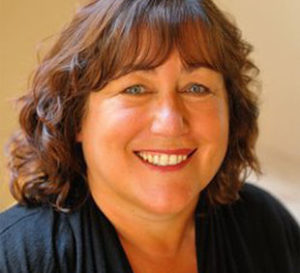 Rachel Abbott was born just outside Manchester, England, and spent most of her working life as the Managing Director of an interactive media company. After her company was sold in 2000, she fulfilled a lifelong ambition of buying and restoring a property in Italy. She now splits her time between homes in Italy and Alderney, where she writes full time and has just completed her sixth novel.
Rachel Abbott was born just outside Manchester, England, and spent most of her working life as the Managing Director of an interactive media company. After her company was sold in 2000, she fulfilled a lifelong ambition of buying and restoring a property in Italy. She now splits her time between homes in Italy and Alderney, where she writes full time and has just completed her sixth novel.
Rachel launched her first novel Only the Innocent in November 2011. The book was self-published in the UK through the Kindle Direct Publishing program on Amazon and reached the number 1 spot in the Kindle store just over three months later. It held its position for four weeks and was the second highest selling self-published title in 2012.
Since then, Rachel has gone on to write a further four best selling novels – The Back Road, Sleep Tight, Stranger Child and Nowhere Child (a novella). Her fifth book, Kill Me Again, is launched on 17th February 2016.
In August 2015, Amazon confirmed that Rachel is the UK’s best selling independent author over the last five years. She is also listed at number 14 on the list of bestselling authors – both traditionally and independently published – over the same five-year period.
Her fourth novel – Stranger Child – was the 11th bestselling novel in the first half of 2015 and the most borrowed book during that period.

Hi, Garry — Great surname you have there 😉 I have answered your questions below — do you need any cover images or links etc for your post? Just let me know what else you need and I hope the answers are sufficient for you. Best wishes — Rachel
How many publications did it take you to reach the “Tipping Point” where your commercial writing began to take off?
I was extremely lucky that my very first novel made it to number one in the UK Amazon chart and it stayed there for four weeks! I think it’s a lot harder to achieve that now because this was in early 2012 and there are so many more books to compete against in the current ebook market. The thing that worked for me was creating a marketing plan. Until I did that, I was only selling books in single figures, but once I was focused on a structured plan of how to market my book to readers, it all came together.
What have you found to be the most effective form of promotion?
Over the years the most effective form has changed. I think that chatting on forums worked really well in the early days, as did Twitter. I now find that the mailing list that I have built works well, and I do some advertising on Facebook. I could be doing so much more, but then the marketing becomes a full-time job and leaves no time for writing. So now I focus on building my reader database and finding ways of rewarding my fantastic readers for their support. I also find that Bookbub is a fantastic way of promoting any price deals that I am offering. It costs money, but it is more than repaid in sales.
Looking back, what would you have done differently earlier in your game to achieve your current success?
One thing that was missing with my first book was a thorough edit (although that has happened subsequently). I always thought that an editor just corrected mistakes. I had no idea that the edit was a time to review the plot, the pace, the characters, the settings – the list is endless. So if there is one piece of advice I would give to a new writer it would be to save up enough money to pay for a proper edit – not just a proofread (although, of course, that’s important too). I have read a number of self-published books that have clearly not been edited because character names change half way through, or the timeline doesn’t work, or there are huge passages of explanation at the end to try to make sense of it all. A good editor would help the writer to sort these issues out. Fortunately, the lack of an editor didn’t prevent me from being successful with my first book, Only the Innocent. But I can’t help wondering how much more successful it might have been with a decent edit.
The best advice I can give to indie authors, in addition to getting your book edited as I mention above, is to really focus on how you are going to market your book. Choose one or two things that you could do well, and stick to them. If you are very new to this and don’t already have an audience for your books, the most important aspect of your marketing is going to be to raise awareness of your jacket. Marketers say that a product (in this case, a book) has to be seen seven times before people become really aware of it.
You want people to go to an online store and think “I’ve seen that book somewhere before” – with enough for them to take a look at what it’s about. So make sure you use your book cover everywhere you can – in your email signature (linked, of course, to where they can buy it), on Twitter, Facebook, or whatever forms of social media you use. Just get that cover recognized (and, of course, make sure it’s a good cover). The very first stage of marketing is AWARENESS.
— — —
BIO — Rachel Amphlett
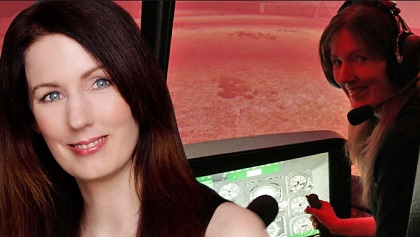 Before moving to Australia in 2005, Rachel Amphlett lived in the UK and helped run a pub, played guitar in bands, worked as a TV and film extra, dabbled in radio as a presenter and freelance producer for the BBC, and worked in publishing as a sub-editor and editorial assistant.
Before moving to Australia in 2005, Rachel Amphlett lived in the UK and helped run a pub, played guitar in bands, worked as a TV and film extra, dabbled in radio as a presenter and freelance producer for the BBC, and worked in publishing as a sub-editor and editorial assistant.
Her thrillers appeal to a worldwide audience and have been compared to Robert Ludlum, Michael Crichton and Clive Cussler.
With plotlines ripped straight out of today’s news, international settings and colorful characters bring the world of modern espionage to life, exploring complex technology while providing an adrenalin-fuelled reading experience.

Hi, Garry — Great to hear from you, as always. Thanks for considering me for this blog post. Here are my thoughts. Hope this is of use — can’t wait to read about others’ experiences! Regards — Rachel
How many publications did it take you to reach the “Tipping Point” where your commercial writing began to take off?
Things really got going for me in June 2014 when my third novel, Before Nightfall was released – at the same time, I’d been approached by Italy’s TimeCrime imprint to sell the foreign rights to White Gold, and there seemed to be a lot of opportunities that happened out of the blue; suddenly people were sitting up and taking notice of what I was doing. When I realized I could make a serious go at being an indie author, I spent the back half of 2014 writing as much as possible – I knew I had to build up a quality back catalog of books to take advantage of those opportunities. I started 2015 with a whole new outlook on indie publishing: I’d overhauled the covers of my first two books, I had a full-blown business and marketing plan, a production schedule, an overhauled website, and three books planned for publication that year. I haven’t looked back.
What have you found to be the most effective form of promotion?
I use a combination of tactics to ensure I get the best results from a promotion. For example, for a 99c promo I’ll pitch to BookBub first, and if accepted, then I’ll email the deal to my mailing list a few days before. That gets the book up in the top of the sub-genre charts so it’s already in the top 10 for those before the BookBub promotion kicks in. I’ll then pay to advertise with a couple of other (cheaper) newsletter-based promoters two days apart to keep the momentum going. That seems to be working really well for me at the moment. I’m still in a learning curve with regard to Facebook advertising – it does well for me in relation to mailing list subscribers, but not so well for sales.
Looking back, what would you have done differently earlier in your game to achieve your current success?
I would have published more regularly, and I would have started a mailing list a year earlier – my mailing list subscribers are the engine behind my success; they’re truly amazing. I think it’s a confidence thing, too. I didn’t believe in myself enough at the start, and that’s something that just takes time.
— — —
BIO — Adam Croft
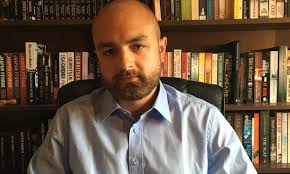 With more than half a million books sold to date, Adam Croft is one of the most successful independently published authors in the world.
With more than half a million books sold to date, Adam Croft is one of the most successful independently published authors in the world.
Following his 2015 worldwide bestseller Her Last Tomorrow, his psychological thrillers were bought by Thomas & Mercer, an imprint of Amazon Publishing. Prior to the Amazon deal, Her Last Tomorrow sold more than 100,000 copies across all platforms and became one of the bestselling books of the year, reaching the top 10 in the overall Amazon Kindle chart and peaking at number 12 in the combined paperback fiction and non-fiction chart.
His Knight & Culverhouse crime thriller series has sold more than 250,000 copies worldwide, with his Kempston Hardwick mystery books being adapted as audio plays starring some of the biggest names in British TV.
Before writing full time, Adam had previously worked as an internet marketing consultant, delivery driver and professional actor. Adam has been featured on BBC Radio, The Guardian, The Huffington Post, and a number of other news and media outlets.

Hi, Garry — Sorry for the late response and brevity. Thank you for thinking of me. I’m honoured to be in such esteemed company! To be honest, it’s a case of keep moving in the right direction. Keep building your mailing list and your audience. FB ads allowed me to accelerate that growth by finding tens of thousands of readers in a shorter space of time than usual. Let me know if you need anything else — always happy to help. Please do let me know if you need more — this is only as brief as it is purely because I’m trying to catch up on hundreds of emails after getting back from holiday 🙂 Here are my answers to your questions:
How many publications did it take you to reach the “Tipping Point” where your commercial writing began to take off?
Her Last Tomorrow was my 9th book. Although I’d been making a living before then, the enormous success of that book was something else entirely. It paid off my mortgage, allowed my wife to leave her job and changed our lives forever.
What have you found to be the most effective form of promotion?
Facebook Ads really tipped me over the edge and changed the way I promoted myself and my books, but it’s not the be-all-and-end-all. My mailing list is my biggest marketing tool by far.
Looking back, what would you have done differently earlier in your game to achieve your current success?
I would have got my mailing list set up much earlier and realised the sheer power of it. I’d also have been more productive, taken more risks and thrown far more caution to the wind. This isn’t an industry you can pussyfoot around in.
— — —
BIO — John Gilstrap
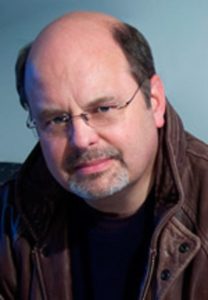 John Gilstrap — A little bit about my background… I’ve always been a closet-writer. As a kid, I lived for the opportunity to write short stories. I was the editor of my high school newspaper for a while (the Valor Dictus, Robinson High School, class of 1975), until I quit (“You can’t fire me! I quit!”) over a lofty First Amendment issue that seemed very important at the time. My goal, in fact, was to become a journalist in the vein of Woodward or Bernstein. Okay, I confess, I wanted to be Woodward; Robert Redford played him in the movie, and chicks really dug Robert Redford.
John Gilstrap — A little bit about my background… I’ve always been a closet-writer. As a kid, I lived for the opportunity to write short stories. I was the editor of my high school newspaper for a while (the Valor Dictus, Robinson High School, class of 1975), until I quit (“You can’t fire me! I quit!”) over a lofty First Amendment issue that seemed very important at the time. My goal, in fact, was to become a journalist in the vein of Woodward or Bernstein. Okay, I confess, I wanted to be Woodward; Robert Redford played him in the movie, and chicks really dug Robert Redford.
I graduated from the College of William and Mary in 1979, and armed with a degree in American history, I couldn’t find a job. I ended up settling for a position with a little-noticed trade journal serving the construction industry. They called me the managing editor and they paid me food stamp wages. I hated it. About this time, I joined the Burke Volunteer Fire Department in Fairfax County, Virginia, if only to find relief from the boredom of my job. Running about a thousand calls my first year with the department, I was hooked, and the volunteer fire service became an important part of my life for the next 15 years. In the early eighties, hating my job, I went the way of all frustrated liberal arts undergrads—back to graduate school. Earning a Master of Science degree in safety engineering from the University of Southern California, I started down a whole new road. For the next decade and a half, I became an expert (don’t you hate that word?) on explosives safety and hazardous waste. Meanwhile, I kept writing. I didn’t tell anyone, of course, because, well, you just don’t share artistic dreams with fellow engineers. They look at you funny.
My first novel, Nathan’s Run, was in fact my fourth novel, and when it sold, it sold big. At a time in my life when things were going well—I was president of my own consulting firm—things were suddenly going very well. Warner Bros. bought the movie rights to Nathan’s Run two days after the first book rights were sold, and as of this date, the novel has been translated and published in one form or another in over 20 countries. With Nathan’s Run in the can, as it were, I thought I might finally be on to something, but I didn’t quit my “day job” until after I sold the book and movie rights to my second novel, At All Costs. I figured that while one-in-a-row might be luck, two-in-a-row was a trend. So, I started writing full-time.
More novels followed, and then a few screenplays. I was living the dream.
But I really didn’t like it much. I learned pretty quickly that when you’re born a Type-A personality, those extrovert tendencies don’t go away just because you’re practicing a craft you love. In fact, after just a couple of years of dream fulfillment, I was pretty friggin’ bored with the company of my imaginary friends, so I did something that I’ve never heard a full-time artist do before: I went back to a day job. At first, it was just a matter of reactivating my consulting business, but then, in 2004, I was handed my ideal Big-Boy Job (that’s what my wife calls it) working as the director of safety for a trade association in Washington, DC.
That Big Boy Job lasted ten and a half years, and after that much time in the trenches of the association world, I was ready to take a step back into full-time writing. Over the decade-plus that I was with the Institute of Scrap Recycling Industries, I figure that I spent close to 2,000 nights in hotel rooms. I have platinum status out the wazoo, and I met hundreds of very nice people, but my wick burned down to the nub and I retired from there in January 2015. You know, it’s funny. When you ask people who choose to leave a job that they liked how they made the decision to leave, the clichéd answer is, “When the time comes, you’ll know.” That’s exactly how it was for me. I just knew.
I’ll keep my hat in the safety consulting ring for a while, mostly as a speaker or a columnist, but I think it’s safe to say that I have filled out my last leave request form.
And I continue to write. In 2006, Six Minutes to Freedom was published to considerable acclaim. My first (and probably last) foray into book-length non-fiction, SixMin tells the story of Kurt Muse, the only civilian of record ever rescued by the super-secret Delta Force. Thanks to Kurt’s cooperation (he is co-author), I gained access to people and places that lifelong civilians like me should never see. The heroic warriors I met during that research turned out to be nothing like their movie stereotypes. These were not only gentlemen, but gentle men, who remained free of the kind of boasting and self-aggrandizement that I was expecting. They were supreme professionals, and very nice guys.
And through them, I got the idea for my new series character, Jonathan Grave. He’s former Delta, released from the Army under circumstances that will be revealed over time, and now he’s a freelance hostage rescue specialist. He’s the finest friend you could ever have, and the worst enemy. No Mercy, the first entry in the series, hit the shelves in June of 2009, with Hostage Zero following in 2010, Threat Warning in 2011, Damage Control in 2012, High Treason in 2013, End Game in 2014, Against All Enemies in 2015 and Friendly Fire in 2016. If fans like him, and if they enjoy his adventures, there’ll be many more to come.

So that’s it, Garry. My history in a few hundred words. I’m happy to participate. I hope these answers are what you were looking for. — Best, John Gilstrap
How many publications did it take you to reach the “Tipping Point” where your commercial writing began to take off?
My “first” novel, NATHAN’S RUN, was actually the 4th novel I wrote. I never tried to sell the first three because I didn’t think they were very good. When NATHAN’S RUN did sell, it sold big. I got a headline-making advance from my U.S. publisher, and then stunning advances 23 other publishers around the world. Then there was the sale of movie rights. My second book, AT ALL COSTS, sold to similar numbers before NATHAN’S RUN was even published.
I hit the book biz out of the park at my first two swings at-bat. Then the nightmare happened: Neither of those books sold in great enough numbers to earn out any of the advances. I was able to sell my next two books for a tiny fraction of the 1st two deals, but the editor who bought them left for another publisher shortly thereafter, and the replacement editor likewise left. The books tanked and my career was presumed dead.
The climb back to the top started with a nonfiction book called SIX MINUTES TO FREEDOM, my first book with Kensington. It did better than anyone dreamed it would, and it gave me access to the community of people and toys that Jonathan Grave utilizes in the current series.
That’s a long answer to a short question, but I don’t know how else to approach it.
What have you found to be the most effective form of promotion?
I don’t think anything beats word-of-mouth. The trick is getting people to talk, and I think the only way to do that is to keep writing books. Conferences always help as a form of networking and meeting fans and fellow writers, and social media helps if you look at it as a way of helping others as opposed to a way to hard-sell your books. When all is said and done, though, it all comes back to writing good stories that are well-told. And that’s the single element over which we writers have total control.
Looking back, what would you have done differently earlier in your game to achieve your current success?
Truthfully, I never play the woulda-coulda-shoulda game. Yesterday is done; tomorrow’s where the action is. My years in the fire and rescue service shaped my philosophy on problem solving. When my job was was to bring order to chaos, “how did that happen” was a far less relevant question than “how are we going make it better”. You learn from your mistakes, sure, but its fundamentally self-destructive to dwell on them. In a very real way, whatever mistakes I may have made in the past shaped the person I am. Without those mistakes, I believe I wouldn’t be enjoying my current success.
— — —
BIO — Bob Mayer
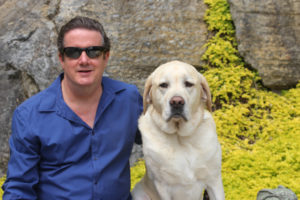 Bob Mayer is a NY Times Bestselling author, graduate of West Point, former Green Beret and the feeder of two Yellow Labs, most famously Cool Gus. He’s had over 70 books published including the #1 series Time Patrol, Area 51, Atlantis and The Green Berets. Born in the Bronx, having traveled the world (usually not tourist spots), he now lives peacefully with his wife, and said labs, at an undisclosed location.
Bob Mayer is a NY Times Bestselling author, graduate of West Point, former Green Beret and the feeder of two Yellow Labs, most famously Cool Gus. He’s had over 70 books published including the #1 series Time Patrol, Area 51, Atlantis and The Green Berets. Born in the Bronx, having traveled the world (usually not tourist spots), he now lives peacefully with his wife, and said labs, at an undisclosed location.

Hi Garry — Thanks for getting in touch. I’ll be in Vancouver later this year for the Surrey Writers Conference. Hope to see you there. As Terry Gilliam says in the attached image: Mule-like stupidity works. Let me know if you need anything else and thanks! — Bob
How many publications did it take you to reach the “Tipping Point” where your commercial writing began to take off?
It took me three years to get an agent and get my first book published. I’ve been making a living for 25 years since then, although what “making a living” entails varies from living in a one-room unheated apartment above a garage to Write on the River. When I went indie, it didn’t take off until I committed to it 100%. I really believe focus and commitment can’t be measured but are key. Nothing happens fast in this business so I believe the #1 rule for success is: Choosing a specific long-term goal and doing whatever it takes to achieve it.
What have you found to be the most effective form of promotion?
I don’t think there is one most effective form. The biggest, and hardest, thing is to get engagement. We just rebuilt my web site at www.bobmayer.com to focus on my current series Time Patrol. We made it more of an experience rather than just full of info. Every Wednesday we have a new briefing on a specific event in history. We’ll also be adding in briefings on current world situations by looking back at historical examples. A writer can’t do everything well. What works for one person doesn’t for another. I think being niche is key. Focus is key. Integrate all your efforts as much as possible. One of the hardest things is to be consistent, even if you’re not seeing immediate results. It takes time.
Looking back, what would you have done differently earlier in your game to achieve your current success?
The things I would have done differently? Networked more. It’s a people business. I’m traveling out to Seattle in a month or so to sit down with Amazon. I go to Thrillerfest to meet people in the business. I sat back too much and just thought I had to write the books. I’d also focus more. I wrote a lot of single titles just because I wanted to. Now I’m focusing one series, but in doing so am pulling together a number of my other series. Networking is engagement with the industry, while marketing is engagement with readers. So I go back to that key word: Engagement.
Feel free to elaborate if you can and also to give one bonus gem of “Tipping Point” advice to upcoming indie authors.
A bonus tipping point? Every tough training course I went through from Beast Barracks, Special Forces Qualification, Danish Combat Swim School, International Mountain Climbing, etc they say “Look to your left, look to your right. One of you isn’t going to make it.” It never even crossed my mind that I would be the one who wouldn’t make it.
— — —
BIO — Caroline Mitchell
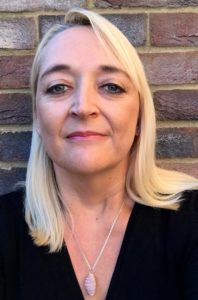 A former police detective, Caroline Mitchell has worked in CID and specialised in roles dealing with vulnerable victims, high risk victims of domestic abuse, and serious sexual offences. She now writes full time.
A former police detective, Caroline Mitchell has worked in CID and specialised in roles dealing with vulnerable victims, high risk victims of domestic abuse, and serious sexual offences. She now writes full time.
Published by Bookouture, her DC Knight crime thriller series reached the number one position in the Amazon crime charts. The first in her new series featuring DS Ruby Preston is due for publication Autumn 2016.
Her new psychological thriller, published with Thomas & Mercer is due for publication late 2016.
Originally from Ireland, Caroline lives with her family in a pretty village on the coast of Essex. Sign up to join her Reader’s club for access to news, updates and exclusive newsletter only competitions and giveaways.
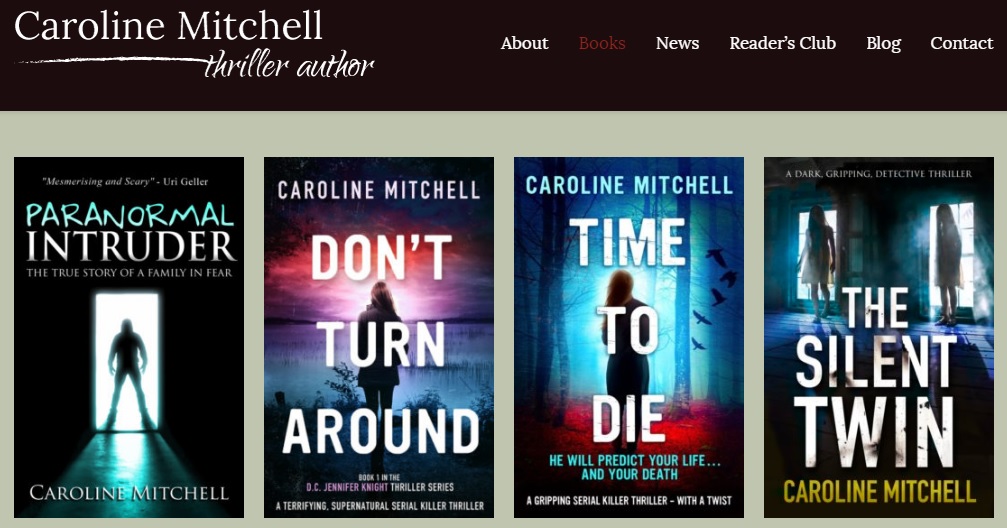
Hi Garry! Lovely to hear from you. I’d love to be included in the blog post, thanks so much! I’ll answer your questions tomorrow if that’s OK. I’m coming to the tail end of some edits that I’ll be glad to see the back of. I think your blog is great, and I’m always happy for an opportunity to tweet it. Please find my responses below, let me know when it goes on, if you need anything else do give me a shout! All I ever wanted to do was to leave my job and write full time, I consider myself extremely lucky to have done so, but I also think the law of attraction helped me get there. Thanks for having me, It will be interesting to read your other responses. Speak soon, Caroline
How many publications did it take you to reach the “Tipping Point” where your commercial writing began to take off?
I self published my first book and was very pleased with the results, but it wasn’t until I published my DC Knight series with Bookouture that things really took off. I was very fortunate, as they were building their list at that time, and actively seeking crime fiction.
What have you found to be the most effective form of promotion?
That’s a good question! I would urge new writers to focus on getting their books written over anything, don’t be sucked into spending half the day on social media, because when you are discovered, readers will want a follow up to your novel pretty quickly. I’m lucky that my publishers have effectively promoted my books, but I’m also hugely grateful to the bloggers who have reviewed my work. Having said that, I would advise getting to know book bloggers before bombarding them with requests, and only submit your work for review to people who enjoy reading that genre. You can’t beat chatting to people face to face, and I find that attending social events such as writing festivals really does go a long way into finding an audience for your work. If you can’t physically attend events then join an online book club. There are lots of them on Facebook, but again, spend some time making friends and getting to know people – but limit your time so you still get lots of writing done too.
Looking back, what would you have done differently earlier in your game to achieve your current success?
I wouldn’t change a thing. I’ve been very lucky because it all happened very quickly for me. Timing can be everything in this business, as well as writing the kind of books that people want to read.
Feel free to elaborate if you can and also to give one bonus gem of “Tipping Point” advice to upcoming indie authors.
I would advise indie authors to produce the most polished piece of work they can. If you are self publishing then invest in a good cover, as well as editors and proof readers for your book. If you’re submitting to agents or publishers, then conduct your research beforehand. Send a polished draft of your work and query people actively seeking your genre. Above all, don’t give up! You need a strong sense of self belief. I’m a firm believer in the law of attraction.
— — —
BIO — Joanna (JF) Penn
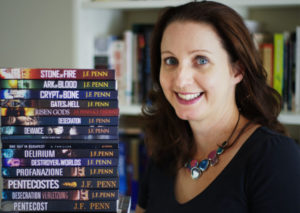 I’m Joanna Frances Penn, a New York Times and USA Today bestselling thriller author. My books blend my love of traveling and learning new things with psychology and the supernatural in a fast-paced style. I’m also an international professional speaker and award-winning entrepreneur, voted as one of The Guardian UK Top 100 creative professionals 2013.
I’m Joanna Frances Penn, a New York Times and USA Today bestselling thriller author. My books blend my love of traveling and learning new things with psychology and the supernatural in a fast-paced style. I’m also an international professional speaker and award-winning entrepreneur, voted as one of The Guardian UK Top 100 creative professionals 2013.
I love reading and always dreamed of writing my own books, but I spent many years thinking about it before I actually took the plunge. However, I did write a lot of journals during my many years as a corporate business consultant!
I have a Masters degree in Theology from the University of Oxford, Mansfield College and also a Graduate Diploma in Psychology – both interests are entwined into my writing.
There are now 8 books in the ARKANE action adventure thriller series, described by readers as ‘Dan Brown meets Lara Croft.’
In early 2013, I wrote a series of short stories based on Dante’s Inferno for Kobo’s Descent contest, a promo for the launch of Dan Brown’sInferno. It’s now available as A Thousand Fiendish Angels.
In Nov 2013, I launched Desecration, the first in the London Crime Thriller trilogy, which debuted in the Amazon US Bestseller Crime list alongside Michael Connelly. Delirium and Deviance complete the trilogy. Readers have described the books as ‘the love child of Stephen King and PD James.’
In March 2014, I became a New York Times and USA Today bestselling author as part of ‘Deadly Dozen,’ a box-set with The Twelve thriller and mystery authors.
In 2015, I co-wrote Risen Gods, a dark fantasy thriller based in New Zealand, with horror author J.Thorn.
On a more personal note, I love reading in diverse genres on my Kindle and I put my book reviews on Goodreads. You can connect with me here. My favorite genre authors include John Connolly, Stephen King, Lisa Gardner, Lee Child and James Rollins. Here’s a list of books I love. I also read a lot of non-fiction, mostly travel, entrepreneurship, psychology, and religion.
I’m married and live with my husband in Bath, England. I’m a cat lover and I enjoy a glass of pinot noir along with consuming a ton of ebooks as my main vice. I walk a lot and traveling is my addiction. I definitely have itchy foot syndrome and I love to move on!

Hi Garry — Sorry, I’ve been away on hols and just getting through email backlog! Just let me know when that piece is up and I’ll share it. I hope all’s well with you. Thanks, Joanna
How many publications did it take you to reach the “Tipping Point” where your commercial writing began to take off?
It depends what you mean by ‘take off’? I’ve never had a break out success, just steady growth as I have written more books and built my audience. I need to do a breakdown of my sales over the last 6 years but I’d say it was 5-7 books before I started to make a low 4 figure income per month i.e. over US$1000 per month – still not enough to live on, but a start!
What have you found to be the most effective form of promotion?
For fiction – paid email blasts like BookBub, followed by building your own email list and having enough books that readers get to know your name and want more.
For non-fiction – my podcast (which has been running since 2009).
Looking back, what would you have done differently earlier in your game to achieve your current success?
I’m very happy with where I am 🙂 but perhaps I would have written more fiction earlier and embraced the 99c Kindle rush in 2009-2011, which I missed because I only had one fiction book then. My lesson learned from this is that (a) things change very fast and what works now will change later (b) jump on new things quickly as they will lose efficacy.
— — —
BIO — Scott Silverii / Liliana Hart (SilverHart Writers)
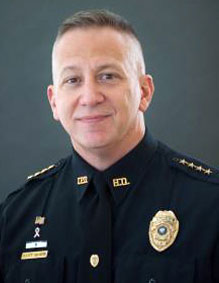 Scott Silverii has served as a Chief of Police since January 2011 and recently retired. Scott previously spent twenty-one years with a nationally accredited Sheriff’s Office. His career is mixed with special operations and academic achievement. Chief Silverii spent nearly two decades in high-risk assignments such as undercover work, Task Force investigations, and SWAT command. His commitment to continuing education includes a Master of Public Administration and a Ph.D. from the University of New Orleans.
Scott Silverii has served as a Chief of Police since January 2011 and recently retired. Scott previously spent twenty-one years with a nationally accredited Sheriff’s Office. His career is mixed with special operations and academic achievement. Chief Silverii spent nearly two decades in high-risk assignments such as undercover work, Task Force investigations, and SWAT command. His commitment to continuing education includes a Master of Public Administration and a Ph.D. from the University of New Orleans.
Scott blends over 24 years of heart-stopping police experiences with an action packed writing style seasoned by the Mardi Gras, hurricanes, humidity and crawfish étouffée. Don’t let the easy Creole smile fool you. The Chief served most of his highly decorated career buying dope, banging down doors, and busting bad guys. You can follow him on Twitter and Facebook.
 Liliana Hart is a New York Times and USA Today Bestselling Author of more than 40 titles. After starting her first novel her freshman year of college, she immediately became addicted to writing and knew she’d found what she was meant to do with her life. She has no idea why she majored in music.
Liliana Hart is a New York Times and USA Today Bestselling Author of more than 40 titles. After starting her first novel her freshman year of college, she immediately became addicted to writing and knew she’d found what she was meant to do with her life. She has no idea why she majored in music.
Since self-publishing in June of 2011, Liliana has sold more than 3 million ebooks. Her books have been translated into eight languages. Liliana appeared at #1 on lists all over the world and all three of her series have appeared on the New York Times list. Liliana is a sought after speaker and she’s given keynote speeches and self-publishing workshops to standing-room-only crowds from California to New York to London.
Liliana can almost always be found at her computer writing or on the road giving workshops for SilverHart International, a company she founded with her husband, Scott Silverii, where they provide law enforcement, military, and fire resources for writers so they can write it right.
Liliana is a recent transplant to Southern Louisiana, where she’s getting used to the humidity and hurricane season, and plotting her next murder (for her books, of course). Visit her website at www.lilianahart.com and follow her on Facebook and Twitter.
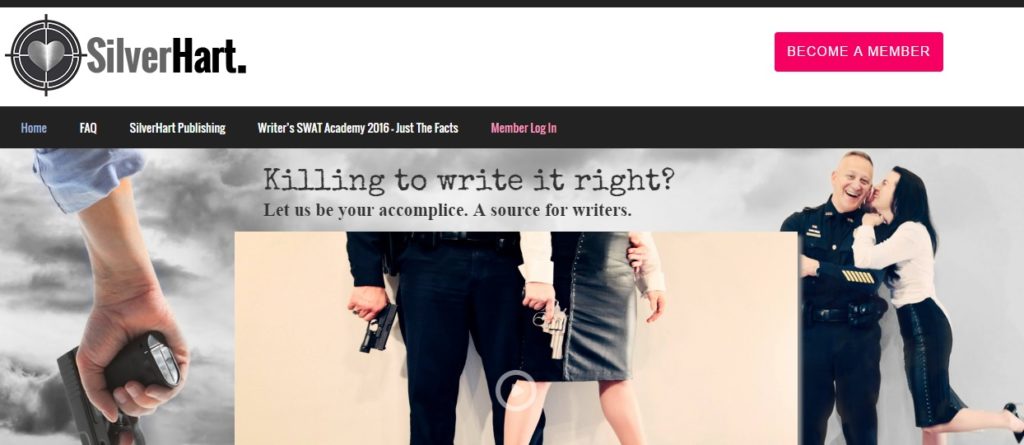
Hi Brother, We’ll be glad to do it. I’ll send it this evening. Hope this helps. Take care, Scott
How many publications did it take to reach the “Tipping Point” where your commercial writing began to take off?
Liliana’s career began to take a significant upward turn at about her 10th book. She had five different series out. Of those 5 series, the MacKenzie Family had 4 titles up. The other 4 series each had first titles released at that point (all self-published.) She’d established a readership at that point and lots of crossover readers from her main three series – MacKenzie family, J.J. Graves Mystery and Addison Holmes Mystery series.
What have you found to be the most effective form of promotion?
By and large, the best form of promotion is your next book. For self-published authors who publish one book and then promote it by every means other than a follow up book, will find it difficult to experience success.
Looking back, what would you have done differently earlier in your game to achieve your current success?
Liliana would have written multiple books in one series instead of books in multiple series. For example, she would have written only in the MacKenzie Family series until she’d released 4 full length books. Next she would have written until the first 4 full novels in the Addison Holmes series and so on for the next series.
Feel free to elaborate if you can and also to give one bonus gem of “Tipping Point” advice to upcoming authors.
Your time and energy is best spent writing books. If facebook posts satisfied novel word counts, each author would have a backlist of thousands of titles. Write your book – promote it, launch it, promote it some more and then focus on writing your next book – repeat this process. Spending thousands of dollars on ads for the one title just published, while facebooking about it and the difficulties, joys, challenges of that book and the next one you are considering writing is a major expenditure of effort. If you want to be an author, then write.
“But I have to build a platform – a fan base.”
If someone reads your book and becomes a fan, they will ask one question – “What’s next?” If you have nothing else, then they move to the next author who can answer that one question with, “Here’s my series of books.”
— — —
 Well, that was quite the ride. 2020, I mean, not my old ’69 428 Super Cobra Jet Mustang that I seriously regret selling. (But that’s for another story.) This time last year, there was absolutely no way I’d have thought “new normal” would be wearing a surgical mask outside the autopsy suite, lining-up in the rain—six feet apart—to score a cheap box of white wine, and applying online for a haircut then shaggily waiting to hear if I won the barbershop lotto. Thankfully, 2020 was actually a very good year for me. I’ll tell you about it, and also wazzup up for Garry Rodgers writing in 2021.
Well, that was quite the ride. 2020, I mean, not my old ’69 428 Super Cobra Jet Mustang that I seriously regret selling. (But that’s for another story.) This time last year, there was absolutely no way I’d have thought “new normal” would be wearing a surgical mask outside the autopsy suite, lining-up in the rain—six feet apart—to score a cheap box of white wine, and applying online for a haircut then shaggily waiting to hear if I won the barbershop lotto. Thankfully, 2020 was actually a very good year for me. I’ll tell you about it, and also wazzup up for Garry Rodgers writing in 2021.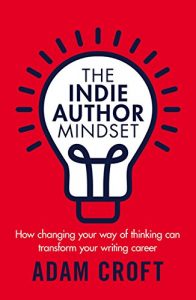 Something changed that Monday morning, and I have to thank my friend Adam Croft for changing me. Adam and I have been friends for as long as I’ve been writing. I say it was back before Adam was famous and I still had hair. His mentorship taught me to develop The Indie Author Mindset, and that took my writing world to an entirely new plane.
Something changed that Monday morning, and I have to thank my friend Adam Croft for changing me. Adam and I have been friends for as long as I’ve been writing. I say it was back before Adam was famous and I still had hair. His mentorship taught me to develop The Indie Author Mindset, and that took my writing world to an entirely new plane.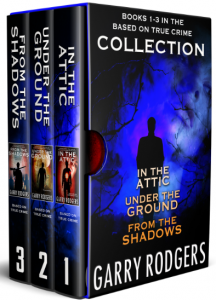 Another venture was publishing a collection or boxed-set of books. I packaged In The Attic, Under The Ground, and From The Shadows into one eBook. Sales have been so-so, but it’s part of the long-term vision that makes the core of the indie author mindset.
Another venture was publishing a collection or boxed-set of books. I packaged In The Attic, Under The Ground, and From The Shadows into one eBook. Sales have been so-so, but it’s part of the long-term vision that makes the core of the indie author mindset.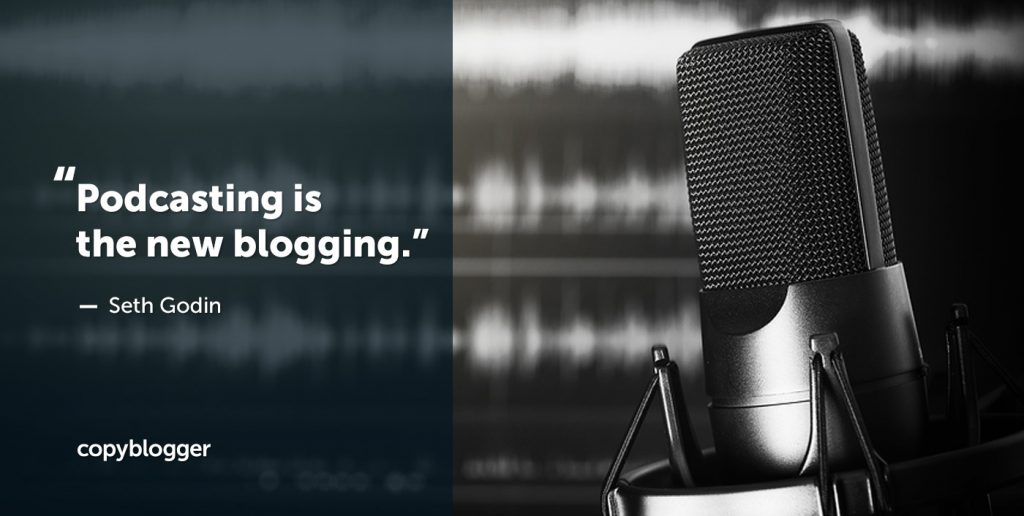 I don’t want to slip the bag off the cat or pull the sheep over your face. But, I’ll hint I’m going to co-host a program… PostMortemPod — Two Crime Writers Dissect Famous Murder Cases. And I’m not going to mention my BFF co-host’s name either unless she wants to leave it in the comments. What we’ll do is have video/audio chats trying to make sense out of high-profile homicide and suspicious death files like JonBenet Ramsey, Natalie Wood, and the Black Dalia. You never know… we might take on a serial killer or two.
I don’t want to slip the bag off the cat or pull the sheep over your face. But, I’ll hint I’m going to co-host a program… PostMortemPod — Two Crime Writers Dissect Famous Murder Cases. And I’m not going to mention my BFF co-host’s name either unless she wants to leave it in the comments. What we’ll do is have video/audio chats trying to make sense out of high-profile homicide and suspicious death files like JonBenet Ramsey, Natalie Wood, and the Black Dalia. You never know… we might take on a serial killer or two.

